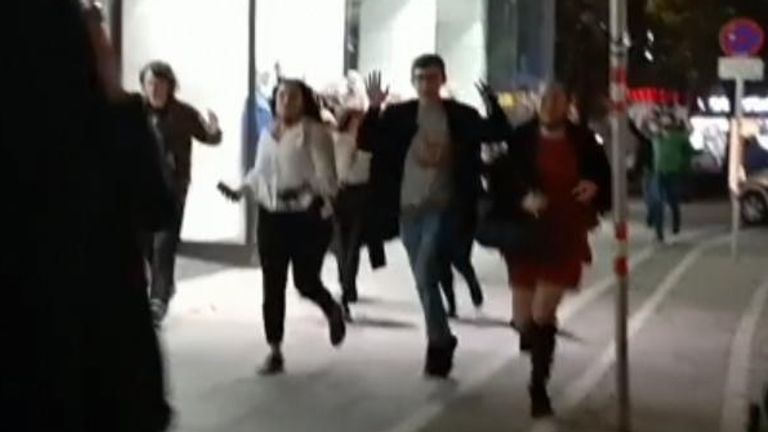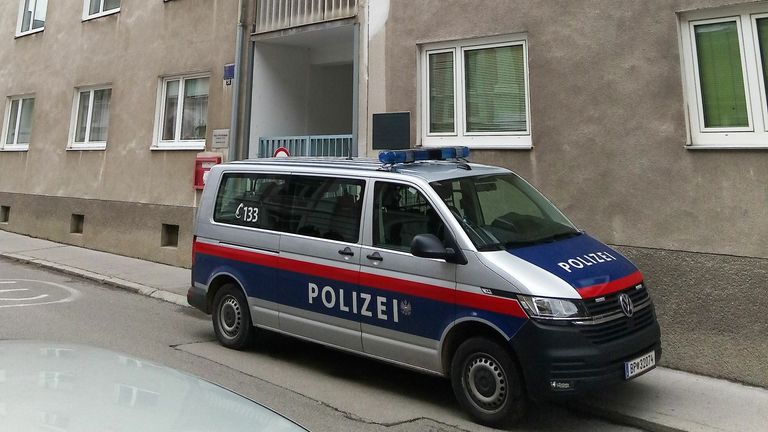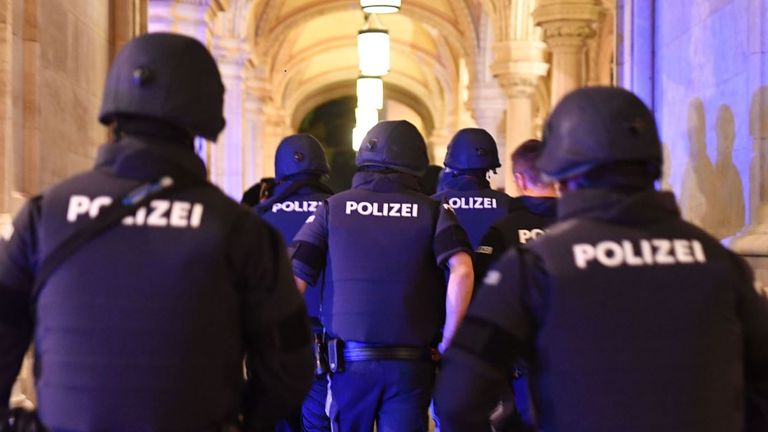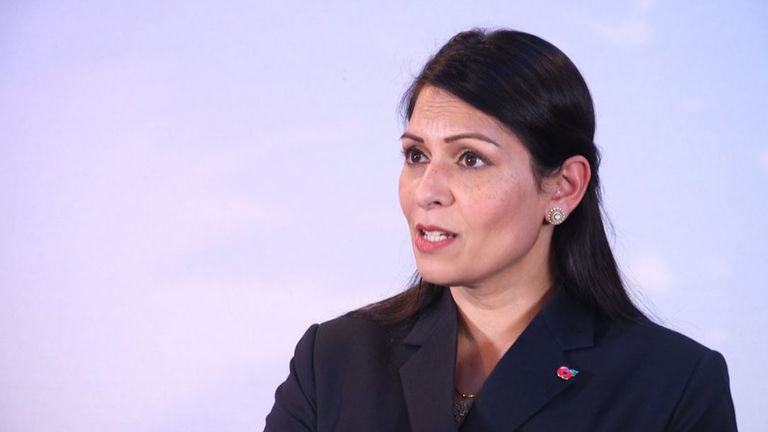It was a bright, sunny and warm day in Vienna, the sort that makes you want to stroll and take your time. But, for the moment at least, this is not a city that is in the mood to relax.
The memories of Monday night’s attack linger over a city that prides itself on being safe and welcoming.
The emotions remain raw, and the scars are all too tangible.
As I stand at the corner of Schwedenplatz and Rotenturmstrasse, I can see the after-effects of the exchange of gunfire that happened at this corner.
The windows are all broken in a small building just ahead of me; on a billboard, the glass has been shattered. There are red circles sprayed on the ground, markers of where bullet casings were recovered.
When attacks like this have happened in the UK, police create cordons that seal off the crime scene for days on end, and keep prying eyes a long way away.
Here in Vienna, it is all more visceral and present.
As we walk around the area, we see a first aid kit that has been opened and discarded.
There are tables that have been upturned, and surgical gloves that have been thrown to one side.
At the foot of a set of steps, there is a small pool of blood that nobody has cleaned up.
Vienna, a city that had not known a terrorist attack for decades, seems confused about how to deal with this sudden burst of violence.
A few minutes away, I find Ravi Kaul strolling down the street. He owns a restaurant near the main synagogue, which had been full with diners enjoying a last meal before the Austrian lockdown.
At about 8pm, he heard rifle shots. “Thump, thump – you can’t mistake that sound,” he told me. “People were running away. There were so many shots – maybe 50, maybe 100.”
His customers gathered inside the restaurant, then many moved upstairs to stay clear.
About ten minutes later, Ravi says they heard another long rally of shots. Then the police came and “they told us to go upstairs and hide”.
Some customers left; some stayed with Ravi until about 2.30am, when they were finally given official permission to head home.
He is desperately sad about what has happened, but thinks another attack “is bound to happen, somewhere, before too long”.
It is a comment that I’ve heard plenty of times, in various European countries, over the past few weeks.
There is already a weary acceptance that terrorism under the banner of Islam has returned.
In France, it already feels like it has patched itself back into the heart of the national dialogue.
In Austria, the realisation has come at a crashing speed over the past couple of days.
Europe’s leaders have been engrossed by COVID, and by its financial impact, for most of this year.
Now, they are being forced to confront the unpredictability and horror of terrorism.
Some will be particularly vulnerable; some will be insulated, but none are immune.
Some are prepared; some are not. Vienna, one of the safest, most welcoming cities in Europe, is now more anxious, and more wary.




